Scientific Advisory Board

The Scientific Advisory Board (SAB) of the Cluster 3DMM2O is composed of eleven internationally renowned scientists. The SAB plays a central role in ensuring the quality of the research of the Cluster by evaluating its progress and reviewing strategic developments.
Chairman of the SAB is Prof. Dr. Marcus Weck (New York University) and Vice Chairman is Prof. Dr. Martina Stenzel (University of New South Wales). You can learn more about the SAB members by reading the short portraits down below.
The Scientific Advisory Board and the Industry Advisory Board meet alternatingly each year.
The members of the Scientific Advisory Board for the new funding period will be newly appointed. Information on the SAB’s composition, including the chair and vice chair, will be published here once the appointment process is complete.
Members of the Previous Funding Period
Prof. Dr. Juan Carlos Cuevas
Current Position: Associate Professor at the Universidad Autónoma de Madrid
Education
- Physics Degree (1993, Universidad Autónoma de Madrid)
- Ph.D. in Physics (1999, Universidad Autónoma de Madrid
Research Areas (selected)
- Nanophysics
- Molecular Electronics
- Nanooptics
Find out more about Prof. Dr. Juan Carlos Cuevas and his research on his website.
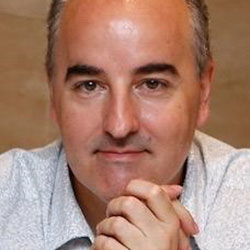
Prof. Dr. Vikram Deshpande
Current Position: Professor in the Department of Engineering at University of Cambridge
Education
- B.Tech. in Mechanical Engineering (1994, Indian Institute of Technology)
- M.Phil. in Engineering (1995, University of Cambridge)
- Ph.D. in Engineering (1998, University of Cambridge)
Research Areas (selected)
- Mechanical behaviour of materials
- Metallic foams and cellular materials
Find out more about Prof. Dr. Vikram Deshpande and his research on his website.
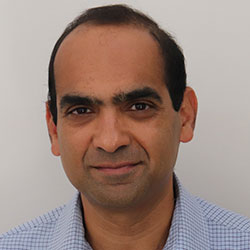
Prof. Dr. Richard Hague
Current Position: Professor of Innovative Manufacturing in the Department of Mechanical, Materials and Manufacturing Engineering at the University of Nottingham
Education
- Physics Degree (1993, Universidad Autónoma de Madrid)
- Ph.D. in Physics (1999, Universidad Autónoma de Madrid
Research Positions (selected)
Research Areas (selected)
- Multifunctional Additive Manufacturing
Find out more about Prof. Dr. Richard Hague and his research on his academic website.
Prof. Dr. Marc Madou
Current Position: Chancellor’s Professor in the Department of Mechanical and Aerospace Engineering at University of California, Irvine
Education
- B.Sc. in Physical Chemistry (1973, Rijksuniversiteit, Ghent, Belgium)
- M.Sc. in Physical Chemistry (1975, Rijksuniversiteit, Ghent, Belgium)
- Ph.D. in Semiconductor Electrochemistry (1978, Solid-State Physics Laboratory, Rijksuniversiteit, Ghent, Belgium)
Research Areas (selected)
- Miniaturization science (MEMS and NEMS)
- Lab-on-a-CD
- Stem Cells
Find out more about Prof. Dr. Marc Madou and his research on his academic website.
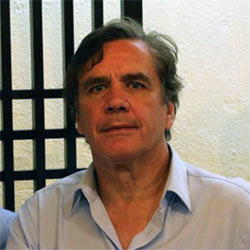
Prof. Shoji Maruo
Current Position: Professor in the Faculty of Engineering at Yokohama National University, Japan
Education
- B.S. in Applied Physics (1992, Osaka University)
- M.S. in Applied Physics (1994, Osaka University)
- Ph.D. in Applied Physics (1997, Osaka University)
Research Areas (selected)
- Development of novel fabrication processes such as multiscale, multimaterial 3D printing and 3D moldings and their application in photonics, MEMS and medicine.
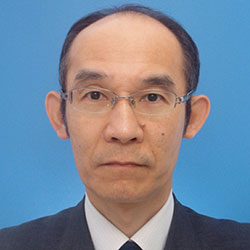
Dr. Alberto Pique
Current Position: Branch Head at Naval Research Laboratory, Washington D.C.
Education
- B.S. in Physics (1987, Rutgers University)
- M.S. in Physics (1990, Rutgers University)
- Ph.D. in Materials Science and Engineering (1996, University of Maryland, College Park)
Research Areas (selected)
- Study and applications of laser-material interactions
- Laser-based direct-write techniques for additive manufacturing of electronic, sensor and micro-power generation devices
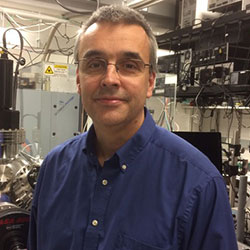
Prof. Dr. Ekaterina Shamonina
Current Position: Professor of Engineering Science at the University of Oxford
Education
- Degree in Physics (1993, Moscow State University)
- Doctorate in Theoretical Physics (1998, University of Osnabrück)
Research Areas (selected)
- Metamaterials
- Amorphous semiconductors
- Photorefractive materials
- Antennas and plasmonics
Find out more about Prof. Dr. Ekaterina Shamonina and her research on her academic website.
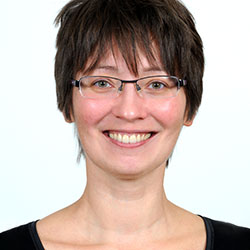
Prof. Dr. Martina Stenzel
Current Position: Scientia Professor at the University of New South Wales
Education
- M.Sc. in Chemistry (1996, University of Bayreuth)
- Ph.D. in Macromolecular Chemistry (1999, University of Stuttgart)
Research Areas (selected)
- Functional Nanoparticles
- Polymer science
Find out more about Prof. Dr. Martina Stenzel and her research on her academic website.
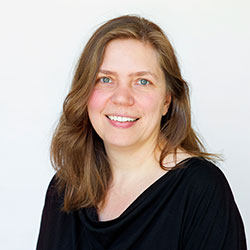
Prof. Dr. Viola Vogel
Current Position: Professor at the Department of Health Science and Technology heading the Laboratory of Applied Mechanobiology at the ETH Zürich, Switzerland
Education
- Diplom in Physics (1983, Goethe University Frankfurt)
- Ph.D. in Physics (1987, Goethe University Frankfurt)
- PostDoc in Physics (1988-90, University of California, Berkeley)
Research Areas (selected)
- Tissue Engineering
- Mechanobiology
- Single Molecules Analysis
Find out more about Prof. Dr. Viola Vogel and her research on her academic website.
Prof. Dr. Marcus Weck
Current Position: Professor in the Molecular Design Institute and Department of Chemistry at New York University
Education
- M.Sc. in Chemistry (1994, University of Mainz)
- Ph.D. in Chemistry (1998, California Institute of Technology)
Research Areas (selected)
- Supported catalysis
- Organized assemblies
- Biomaterials
- Nanostructures
Find out more about Prof. Dr. Marcus Weck and his research on his academic website.
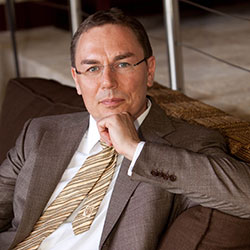
Prof. Dr. Tanja Weil
Current Position: Director of the Max Planck Institute for Polymer Research, Mainz
Education
- Diplom in Chemistry (1998, Technical University of Braunschweig)
- Ph.D. Studies (1999-2001, Max Planck Institute for Polymer Research)
- Dr. rer. Nat. (2002, University of Mainz)
Research Areas (selected)
- Synthesis of quantum materials
- Customized and adaptive macromolecules for precision sensing and therapy
- Polymeric catalysts and hybrid membranes
Find out more about Prof. Dr. Tanja Weil and her research on her academic website.
